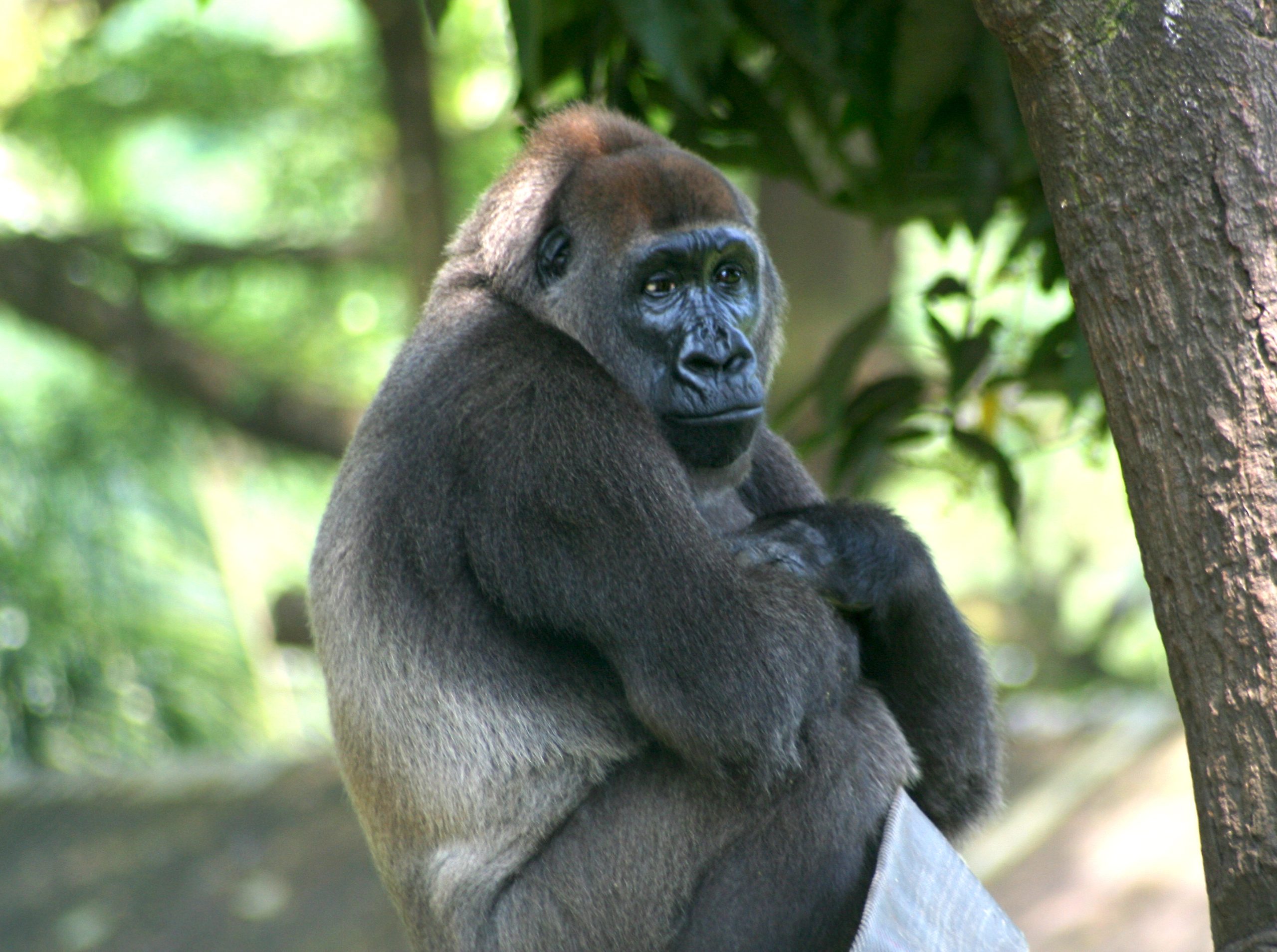In patches of highland forest along the Cameroon-Nigeria border live some of the rarest apes in the world: cross river gorillas, a subspecies of the western lowland gorilla. They are critically endangered. Less than 250 are left in the wild, the dwindling numbers largely due to habitat loss and illegal hunting.
For her 2016 CARN research, Rita Mousme Ebune conducted surveys to determine the status of the cross river gorilla and how human activities are impacting this species in the Mawambi Hills, a proposed community forest in southeast Cameroon. Her study analyzed human activities in the area, finding that agriculture the main source of income for Mawambi communities is leading to forest fragmentation due to the slash and burn farming methods used by cocoa and palm farmers. This fragmentation is the main threat to the cross river gorilla, and other protected species in Mawambi Hills. She also made management recommendations to bolster conservation efforts in the area, including better monitoring of mammal diversity and local socio-economic trends.
Ebune has shared her CARN research results with communities in Mawambi Hills, and is working on establishing a conservation program for the area, which would protect both the cross river gorilla and the Nigeria-Cameroon chimpanzee. She credits the CARN grant with boosting her skills in everything from data analysis to community mobilization.
“My research skills have taken a new turn because of this grant,” she says. “As a young scientist, I am motivated to confidently carry out more research and become an excellent researcher who will, in the future, mentor other young researchers.”
Ebune now works as a Community Development Officer at the Environmental Governance Institute, which works to empower communities in Cameroon to foster social justice and preserve natural resources. “One of my career goals is to be able to empower communities so that they are fully implicated in conservation, and also see their communities’ livelihood improved.”
